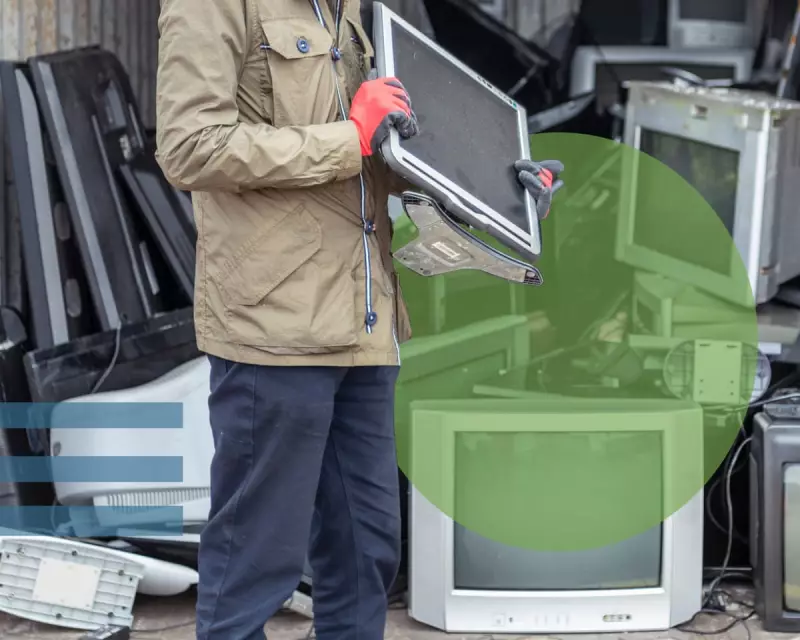
The world is facing an escalating electronic waste crisis, with new data revealing that a staggering 62 million tonnes of e-waste are generated globally each year. This alarming figure is projected to surge to 82 million tonnes by 2030, according to the latest Global E-Waste Monitor.
This deluge of discarded technology, from smartphones to computers, represents the fastest-growing waste stream on the planet. The environmental cost is compounded by the vast amounts of fossil fuels, rare earth metals, and energy required to manufacture these devices in the first place.
The Scale of the Problem
Australia serves as a stark example of the issue, producing 580,000 tonnes of e-waste yearly. The average Australian is responsible for approximately 22kg of e-waste each year, a figure that is almost three times the global average, a recent Productivity Commission inquiry found.
Compounding the problem is the sheer volume of unused devices. An estimated 23 million mobile phones are lying idle in drawers across Australia alone, with about 13 million of them being completely unusable.
"It's the fastest growing waste stream but it's also the most valuable," says Anne Stonier from the Australia New Zealand Recycling Platform (ANZRP). "There's a lot of hard plastic as well, with electronics. By recycling it, you're making sure it is being properly managed. You're helping create a more circular economy."
How to Responsibly Recycle Your E-Waste
Recycling electronics requires more effort than simply tossing them in the household bin. The first step is to research local options. Many local councils operate designated e-waste drop-off points, and disposal in landfill is already banned in Victoria, South Australia, and Western Australia.
Major retailers are also stepping up. Officeworks collects items like batteries, computer accessories, and mobile phones, while Bunnings has collection bins for batteries and larger items like TVs and computers. Industry-led programs like MobileMuster accept a wide range of mobile devices and accessories.
For those upgrading, many manufacturers offer trade-in programs providing credit towards new purchases. Furthermore, charities such as DV Safe Phone and the Reconnect Project accept donations, refurbishing devices for those in need.
Securing Your Data Before Disposal
With devices storing vast amounts of personal information, data security is paramount. Before recycling, users should back up any files they wish to keep and remove any physical identifiers like stickers.
For most smartphones and tablets, a factory reset is sufficient. For computers, laptops, and external storage drives, reformatting the drive alongside a factory reset is recommended. Even printers and scanners can retain document copies and should be reset.
If a device is too old to power on, the focus should be on removing any detachable memory cards. For highly sensitive data, consider using data sanitisation software or professional secure data destruction services.
"If there's any concern about it getting into someone else's hands, it's better to just wipe it," advises Stonier. "You just don't know otherwise. It's better to be safe than sorry."
While physical destruction of a hard drive may seem like a sure solution, it is often ineffective, prevents recycling, and can be hazardous due to battery rupture risks. For most people, taking these basic steps can prevent opportunistic data theft and contribute to a more sustainable future.





